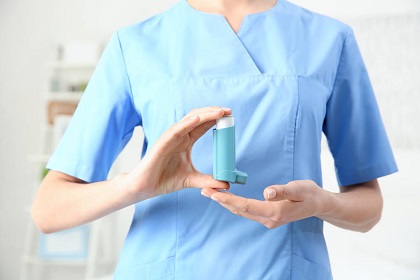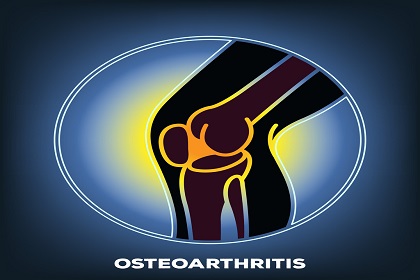Search
Why get vaccinated?
Hepatitis A is a serious liver disease. It is caused by the hepatitis A virus (HAV). HAV is spread from person to person through contact with the feces (stool) of people who are infected, which can easily happen if someone does not wash his or her hands properly. You can also get hepatitis A from food, water, or objects contaminated with HAV.
Symptoms of hepatitis A can include:
• Fever, fatigue, loss of appetite, nausea, vomiting, and/or joint pain
• Severe stomach pains and diarrhea (mainly in children)
• Jaundice (yellow skin or eyes, dark urine, clay-colored bowel movements)
These symptoms usually appear 2 to 6 weeks after exposure and usually last less than 2 months, although some people can be ill for as long as 6 months. If you have hepatitis A you may be too ill to work.
Children often do not have symptoms, but most adults do. You can spread HAV without having symptoms.
Hepatitis A can cause liver failure and death, although this is rare and occurs more commonly in persons 50 of age or older and persons with other liver diseases, such as hepatitis B or C.
Hepatitis A vaccine
Hepatitis A vaccine is an inactivated (killed) vaccine. The vaccine comes indifferent adult and children/adolescents dosage variety. You will need 2 doses for long-lasting protection. These doses should be given at least 6 months apart.
Children are routinely vaccinated between their first and second birthdays (12 through 23 months of age). Older children and adolescents can get the vaccine after 23 months. Adults who have not been vaccinated previously and want to be protected against hepatitis A can also get the vaccine.
You should get hepatitis A vaccine if you:
• Are traveling to countries where hepatitis A is common
• Are a man who has sex with other men
• Use illegal drugs
• Have a chronic liver disease such as hepatitis B or hepatitis C
• Are being treated with clotting-factor concentrates
• Work with hepatitis A-infected animals or in a hepatitis A research laboratory
• Expect to have close personal contact with an international adoptee from a country where hepatitis A is common
Ask your healthcare provider if you want more information about any of these groups.There are no known risks to getting hepatitis A vaccine at the same time as other vaccines.
Some people should not get this vaccine
Tell the person who is giving you the vaccine:
• If you have any severe, life-threatening allergies.If you ever had a life-threatening allergic reaction after a dose of hepatitis A vaccine, or have a severe allergy to any part of this vaccine, you may be advised not to get vaccinated. Ask your health care provider if you want information about vaccine components
• If you are not feeling well. If you have a mild illness, such as a cold, you can probably get the vaccine today. If you are moderately or severely ill, you should probably wait until you recover. Your doctor can advise you
Risks of a vaccine reaction
With any medicine, including vaccines, there is a chance of side effects. These are usually mild and go away on their own, but serious reactions are also possible. Most people who get hepatitis A vaccine do not have any problems with it.
After vaccination, please stay in clinic observation area for 30 minutes.
Minor problems following hepatitis A vaccine include
• Soreness or redness where the shot was given
• Low-grade fever
• Headache
• Tiredness
If these problems occur, they usually begin soon after the shot and last 1 or 2 days.Your doctor can tell you more about these reactions.
Other problems that could happen after this vaccine
• People sometimes faint after a medical procedure, including vaccination. Sitting or lying down for about 15 minutes can help prevent fainting, and injuries caused by a fall. Tell your provider if you feel dizzy, or have vision changes or ringing in the ears
• Some people get shoulder pain that can be more severe and longer lasting than the more routine soreness that can follow injections. This happens very rarely
• Any medication can cause a severe allergic reaction. Such reactions from a vaccine are very rare, estimated at about 1 in a million doses, and would happen within a few minutes to a few hours after the vaccination
As with any medicine, there is a very remote chance of a vaccine causing a serious injury or death.
What if there is a serious reaction?
What should I look for?
Look for anything that concerns you, such as signs of a severe allergic reaction, very high fever, or behavior changes. Signs of a severe allergic reaction can include hives, swelling of the face and throat, difficulty breathing, a fast heartbeat, dizziness, and weakness. These would start a few minutes to a few hours after the vaccination.
What should I do?
If you think it is a severe allergic reaction or other emergency that can't wait, call 120 or get the person to the nearest hospital. Otherwise, call your doctor.
Where can I get more information?
• Jiahui Health
Contact number: 400-868-3000
• Shanghai Municipal Center for Disease Control & Prevention
Contact number: 021-62758710
Website: http://www.scdc.sh.cn
Reference
The US Centers for Disease Control and Prevention. Vaccine Information Statement: Hepatitis A Vaccine, 07/20/2016
Click the link for more information on Family Medicine Clinical Service
Click the link for more information on Pediatrics Clinical Service











